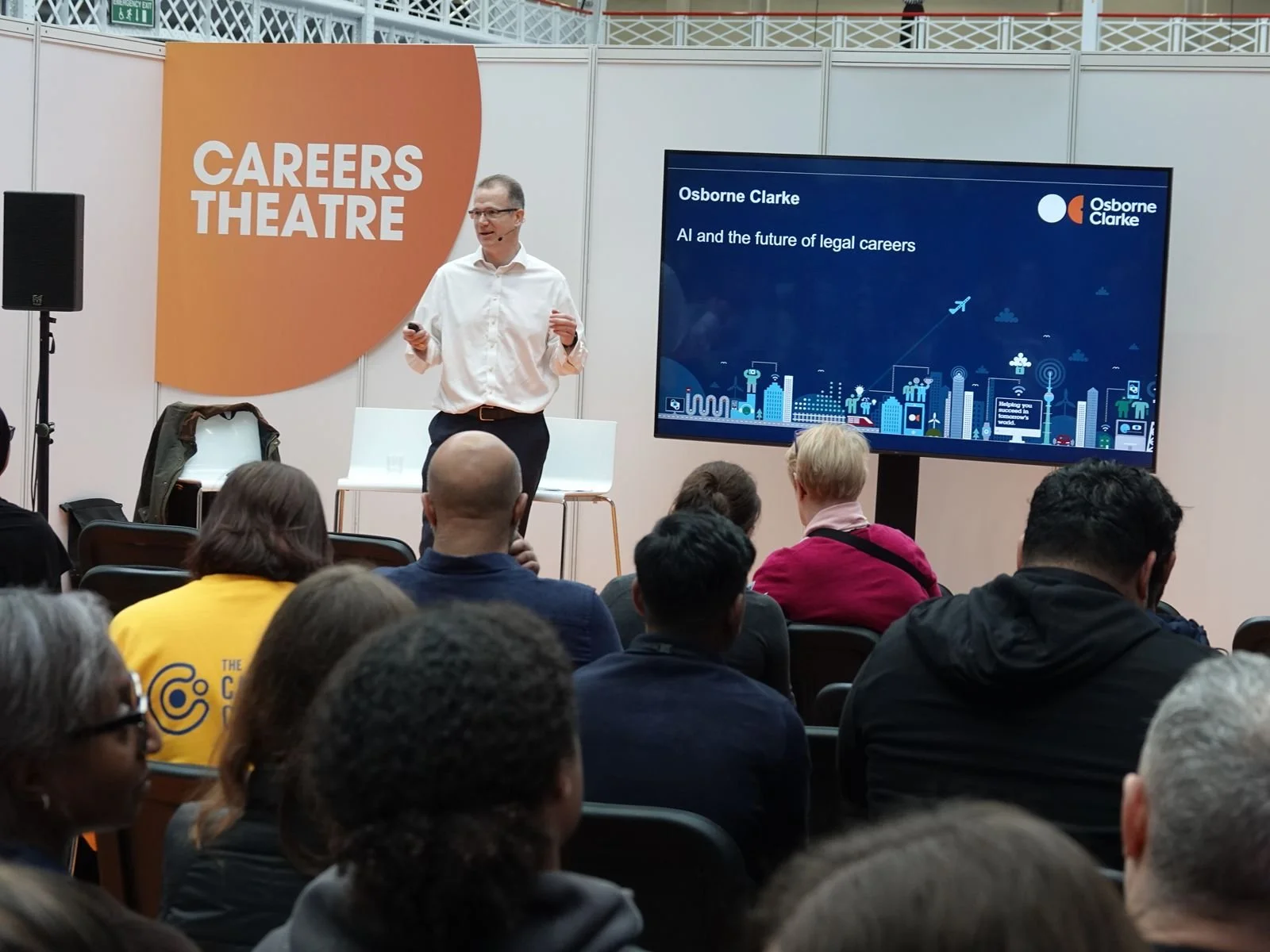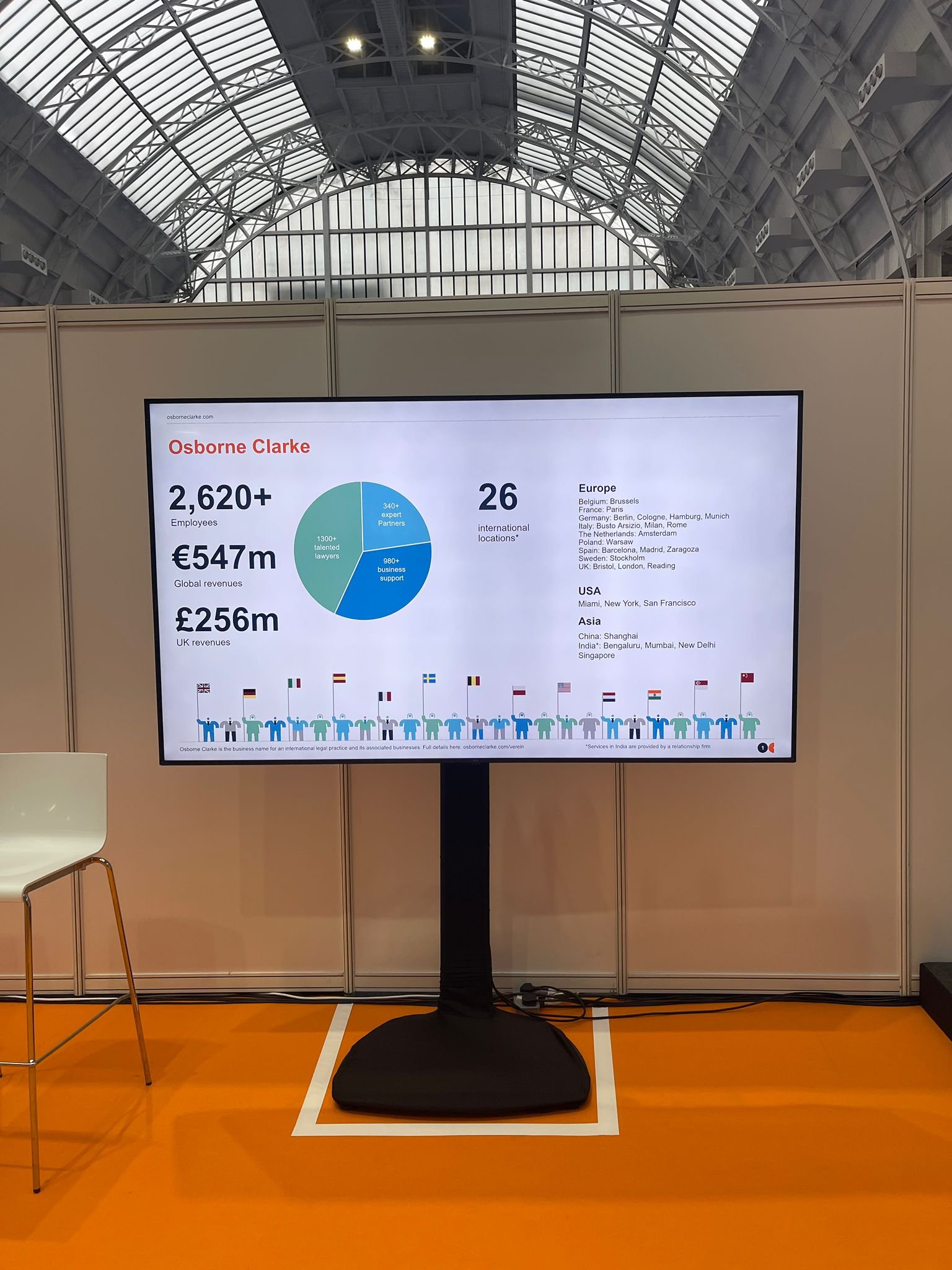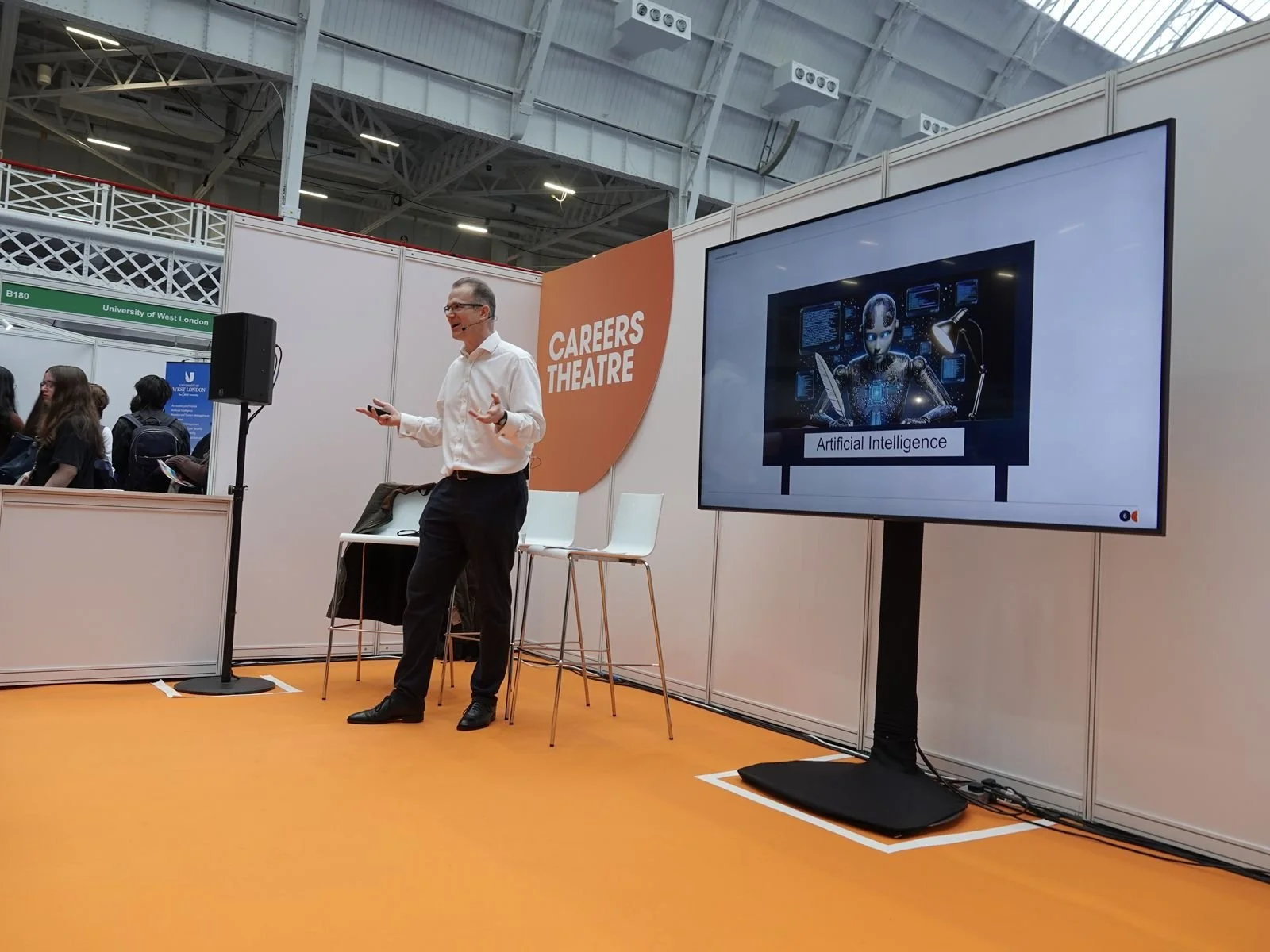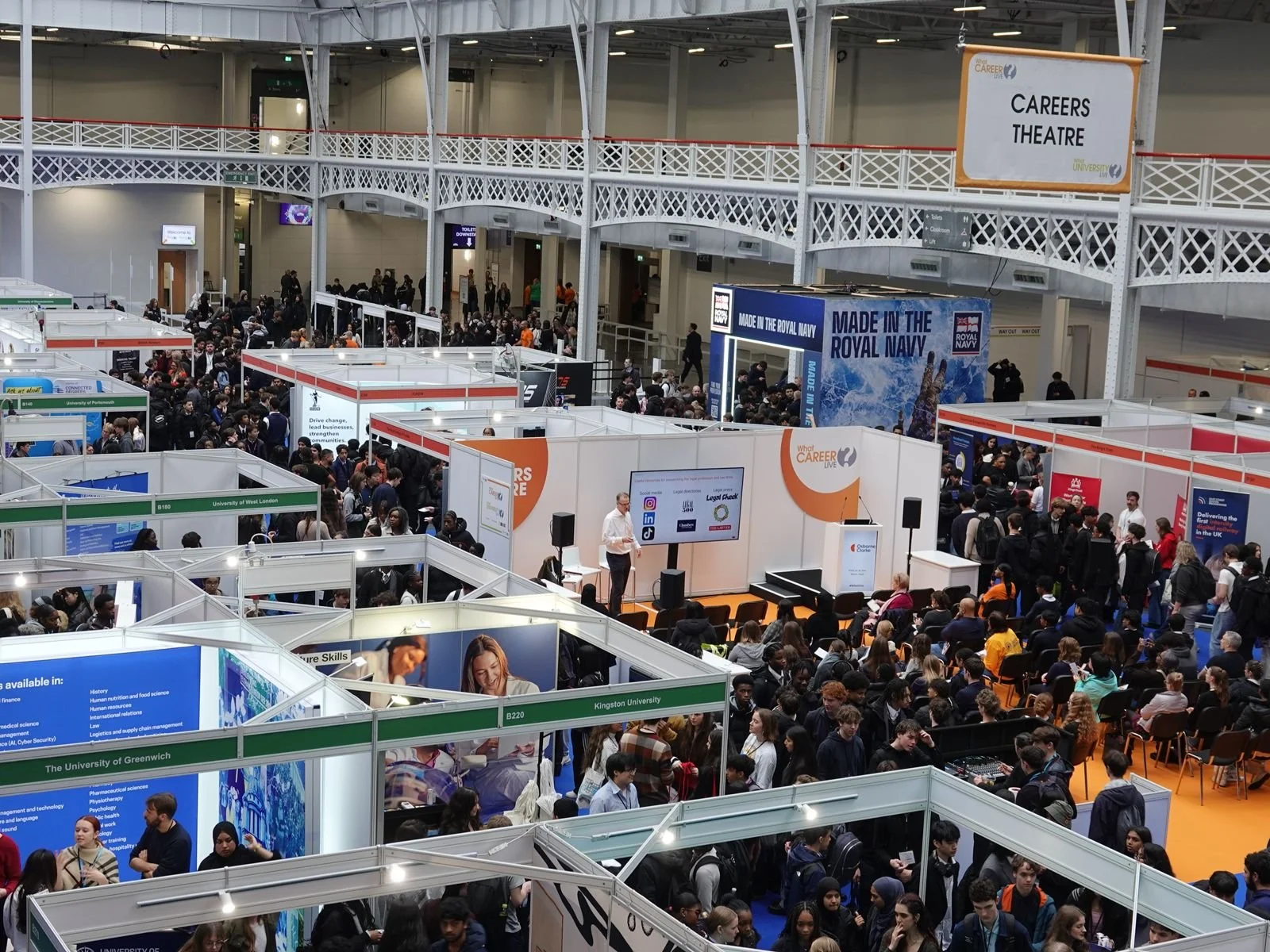Will Gunston, Osborne Clarke, and Why Young People Still Matter in the Future of Law
What Next? What Career? Live at Olympia, London: 14 November 2025
At today’s Careers Show, the Careers Theatre filled quickly for a keynote that stood out from the usual future-tech demos and careers talks. Delivered by Will Gunston, Partner at Osborne Clarke, the session cut through noise and myth to offer young people something far more useful: an honest explanation of how legal careers are changing — and why they still matter.
For RC Vision, this moment had added meaning. Osborne Clarke have supported us with legal guidance for almost two years, helping us grow as a social venture committed to widening access to STEM and shaping fairer futures. Seeing them on the stage today, speaking directly to young people about their own futures, was a natural extension of that partnership.
A Lawyer Who Speaks in Real Terms
Will didn’t arrive as a corporate spokesperson. He opened by saying he wasn’t an HR specialist or a careers adviser. He’s a practising insolvency and restructuring lawyer who joined Osborne Clarke as a trainee in 1997, returned in 2018, and has seen the legal profession transform — first through digital tools and now through AI.
That honesty set the tone. Young people often hear broad claims about automation, disappearing jobs, and “the future of work.” Will did the opposite. He answered their biggest question directly:
“Will there still be careers in law with AI?”
Yes. Absolutely. And he didn’t stop there. He showed them why.
The Changing Shape of Legal Work
Will briefly introduced Osborne Clarke: an international commercial firm working with high-street brands and innovators across Europe, the US, and Asia. The UK practice takes on around 30 trainees and ten apprentices each year, offering clear routes from school or university into the profession. Apprentices start on £28,500 and, after six years, qualify as solicitors with salaries approaching £97,000.
But the real substance of the talk was the shift in how legal work is done.
Will described the early days of his career: walking documents to court, using microfiche, stamping page numbers, and spending mornings retrieving records from Companies House. Today, those tasks are instant. AI is now moving into the next layer of work — searching, summarising, comparing and generating first-draft contracts.
Tools like Harvey and Allegra can analyse vast sets of documents in seconds. Litigation disclosure exercises that once cost clients hundreds of thousands of pounds can now be completed in a fraction of the time.
But then came the twist young people needed to hear.
Will talked openly about the limitations of AI. It produces convincing answers that are sometimes completely wrong: fabricated case law, imaginary legal schedules, or confident explanations that dissolve under scrutiny. He described moments where he pushed an AI tool to justify its answer, only for it to apologise and produce a different — but equally incorrect — one.
That honesty landed well. It reassured students that AI isn’t flawless or magical. It’s fast, useful, and transformative, but it cannot replace human judgment.
And that led to Will’s central point.
The Human Skills Still Matter Most
AI can handle repeatable, document-heavy work. But Will was clear about what it can’t do:
• Negotiate
• Build trust with clients
• Judge risk and ethics
• Understand the human cost of decisions
• Project manage multidisciplinary teams
• Navigate culture, context, and real-world complexity
These aren’t algorithmic tasks. They’re human ones.
And they’re exactly the kinds of strengths RC Vision helps young people uncover through engineering habits of mind: systems thinking, problem-finding, creative problem-solving, adapting, improving, and communicating.
Will didn’t use our vocabulary, but he described our framework perfectly from the legal side of the fence.
Why Today’s Keynote Mattered
Osborne Clarke’s support over the past two years has already helped RC Vision navigate contracts, governance, and growth — but today’s keynote represented something more visible: a shared belief that young people deserve transparent, practical insights about their futures.
Will’s message wasn’t a reassurance that “everything will be fine.” It was more useful than that. It told young people that the future of law is still open to them, but it will reward thinkers, collaborators, problem-solvers, and people who can navigate uncertainty.
In other words: The exact strengths young people were discovering at the STEM Hub today.
Keywords: legal careers, future of law, AI in legal sector, Osborne Clarke, Will Gunston, Careers Show keynote, Engineering Habits of Mind, STEM and law pathways, future skills, youth career guidance, AI hallucinations law, legal apprenticeships, future world of work, RC Vision, human skills in law



